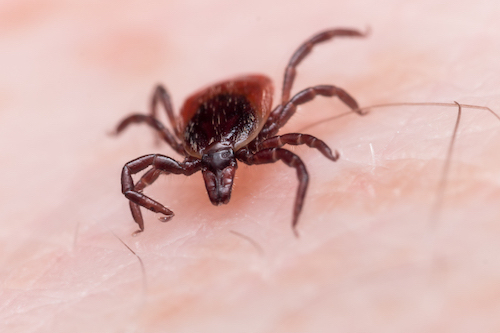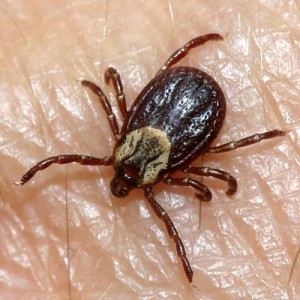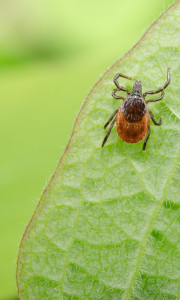Sadly, we see social media posts like this one, recirculating from last year, which alert us of the potential dangers of a seemingly innocent day of fun at the beach with our children and pets. The beach can be a haven – a place of fun, sunshine, and respite…but we must be vigilant in following important safety tips, including those that protect us from tick bites.
Tick protection is essential – protect your kids and pets from ticks at the beach

It’s easy to assume that we won’t encounter ticks at the beach, as there might not be a lot of grass or wooded areas, but that assumption is incorrect. Ticks do live at the beach, carried there by wildlife, and waiting to take their blood meal from an unsuspecting victim.
Protect yourself, your children, and your pets from ticks at the beach by following these tips:
- Do not sit among dunes or grassy areas on the beach
- Use permethrin on your clothes, DEET on exposed skin
- Keep long hair pulled back
- Use tick prevention on your pets
- Check towels, clothing, yourselves, your children, and your pets from head to toe when you are ready to leave – repeat when you arrive home
- Baths and showers for everyone when you get home, including your pet
Beach safety tips for your dog
 Pets can have a great day visiting the beach with us, but there are additional dangers that we might face when bringing Fido on a beach day. I want you to be aware that fleas and ticks are not the only hidden dangers on the beach, as the Facebook post above illustrates.
Pets can have a great day visiting the beach with us, but there are additional dangers that we might face when bringing Fido on a beach day. I want you to be aware that fleas and ticks are not the only hidden dangers on the beach, as the Facebook post above illustrates.
Have a happy and safe day of fun by following these tips:
- Bring lots of fresh water, and a big bowl that won’t turn over
- Be mindful of not allowing your dog to ingest saltwater during play (i.e. fetching the ball in the water)
- Consider a life vest if your dog likes to go into the water
- Bring a cooling mat or cooling vest for your dog, especially if they are a short-nosed (Brachycephalic )
- Give your dog a thorough check for fleas and ticks when you are ready to go home
- Bathe and re-check your dog when you arrive home, to rid his skin of itchy saltwater residue and irritating sand

Did you know that your dog can suffer paralysis from a tick bite?

As always, I am committed to spreading awareness about tick protection, and the prevention of tick-borne illnesses, such as Lyme disease, in Central Mass and beyond. I hope that you and your family have a fun, safe, and tick-free summer this year with professional tick control around your home and yard!


